Tom Breloff
Braid: Weaving Symbolic and Neural Knowledge into Coherent Logical Explanations
Dec 11, 2020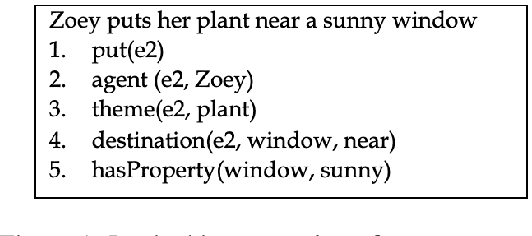
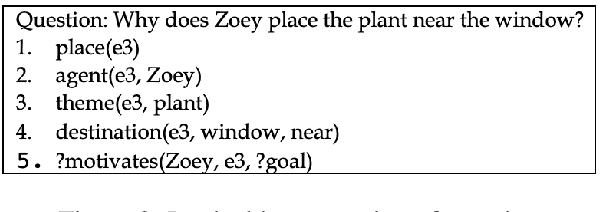
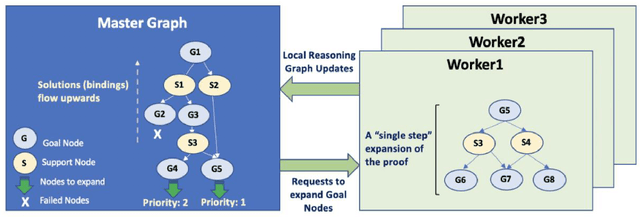
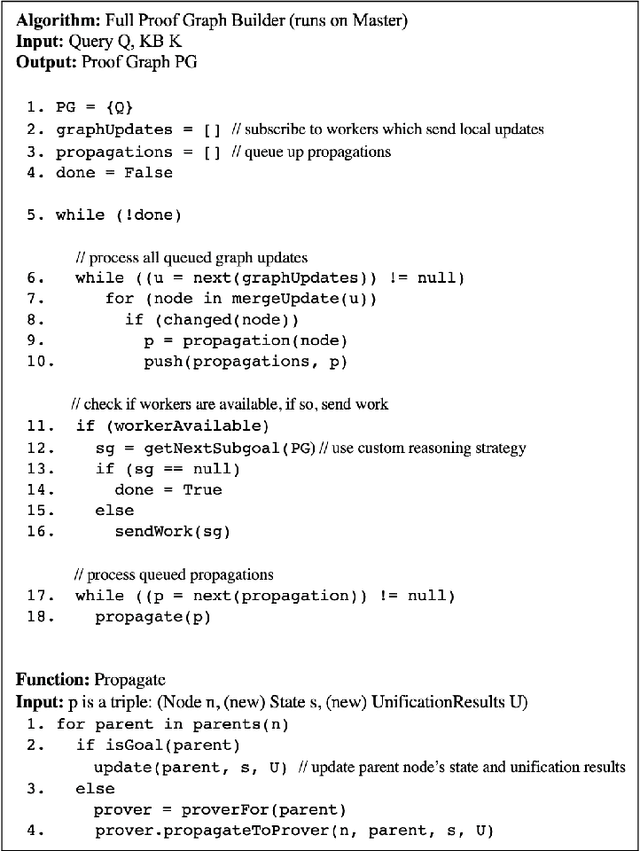
Abstract:Traditional symbolic reasoning engines, while attractive for their precision and explicability, have a few major drawbacks: the use of brittle inference procedures that rely on exact matching (unification) of logical terms, an inability to deal with uncertainty, and the need for a precompiled rule-base of knowledge (the "knowledge acquisition" problem). These issues are particularly severe for the Natural Language Understanding (NLU) task, where we often use implicit background knowledge to understand and reason about text, resort to fuzzy alignment of concepts and relations during reasoning, and constantly deal with ambiguity in representations. To address these issues, we devise a novel FOL-based reasoner, called Braid, that supports probabilistic rules, and uses the notion of custom unification functions and dynamic rule generation to overcome the brittle matching and knowledge-gap problem prevalent in traditional reasoners. In this paper, we describe the reasoning algorithms used in Braid-BC (the backchaining component of Braid), and their implementation in a distributed task-based framework that builds proof/explanation graphs for an input query in a scalable manner. We use a simple QA example from a children's story to motivate Braid-BC's design and explain how the various components work together to produce a coherent logical explanation.
Open-Domain Frame Semantic Parsing Using Transformers
Oct 23, 2020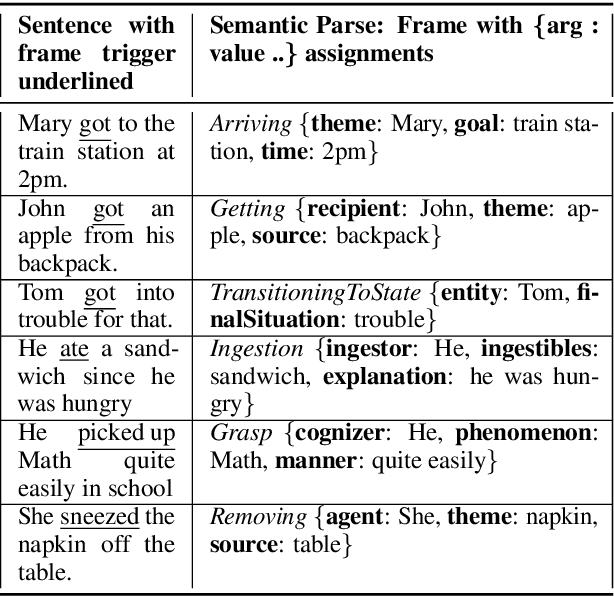
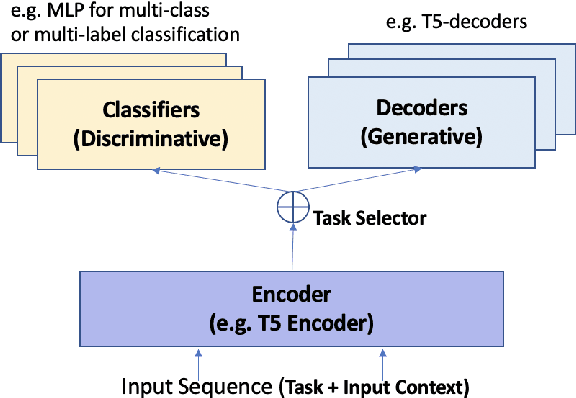
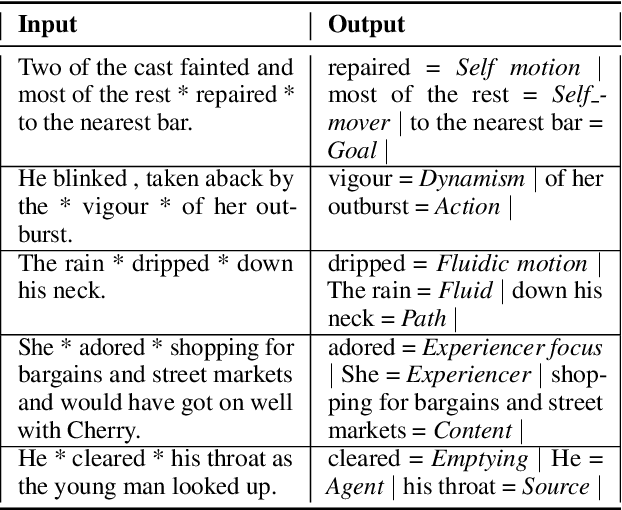
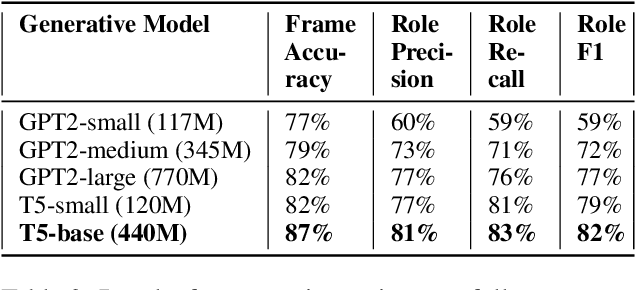
Abstract:Frame semantic parsing is a complex problem which includes multiple underlying subtasks. Recent approaches have employed joint learning of subtasks (such as predicate and argument detection), and multi-task learning of related tasks (such as syntactic and semantic parsing). In this paper, we explore multi-task learning of all subtasks with transformer-based models. We show that a purely generative encoder-decoder architecture handily beats the previous state of the art in FrameNet 1.7 parsing, and that a mixed decoding multi-task approach achieves even better performance. Finally, we show that the multi-task model also outperforms recent state of the art systems for PropBank SRL parsing on the CoNLL 2012 benchmark.
 Add to Chrome
Add to Chrome Add to Firefox
Add to Firefox Add to Edge
Add to Edge